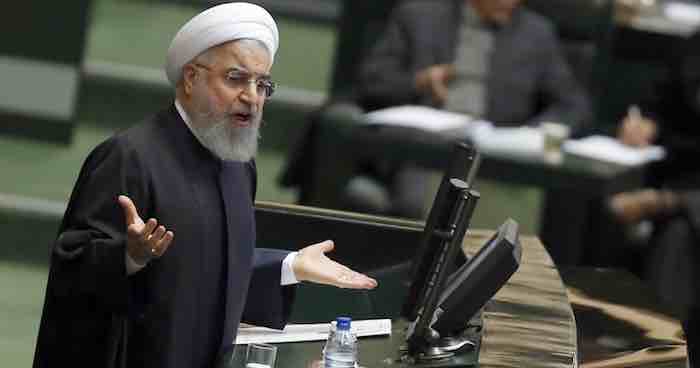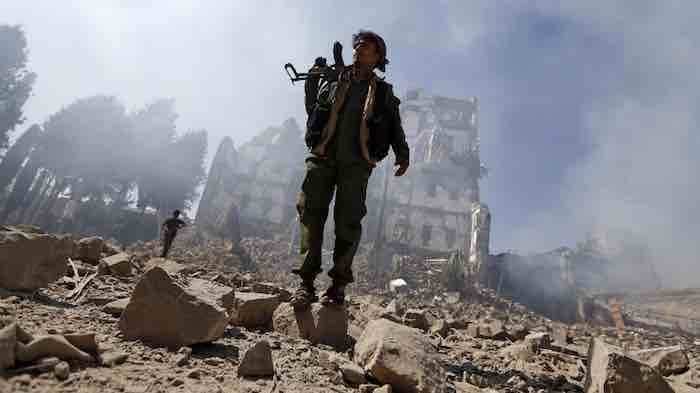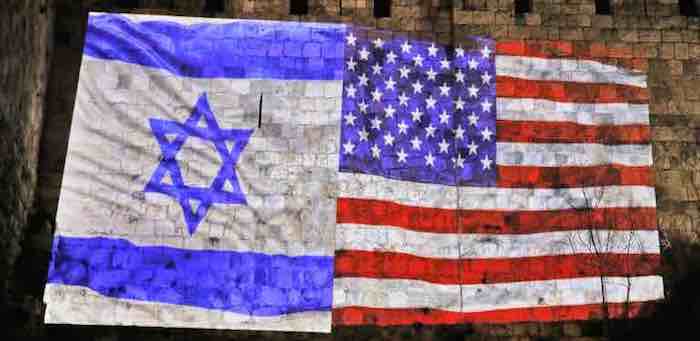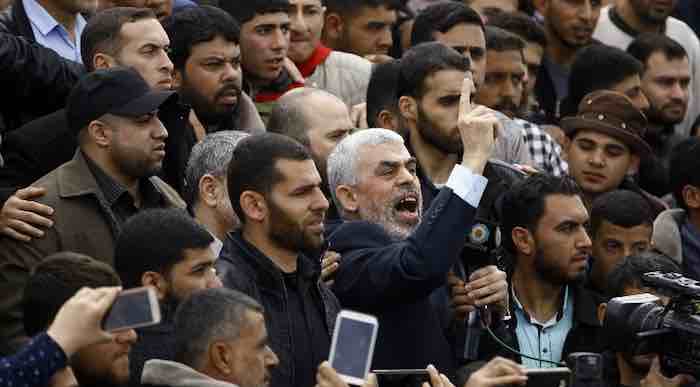
The "March of Return" events have brought out the masses. It seems that since the first intifada the Palestinian arena has not witnessed such widespread mass participation as evident in the recent protests along the Gaza Strip border - on Land Day, Friday, March 30, 2018, and the Friday that followed. As the organizers see it, this is the start of a series of moves, intended to peak on May 15, 2018. The higher number of fatalities than generally known in mass events of recent years and the large number of wounded have aroused in the Palestinians the desire for revenge and increased the motivation to continue the demonstrations. On the other hand, the number of dead and wounded has also deterred many from continuing the activity along the border fence.
- Thursday, April 12, 2018
 Saudi Arabia is in the midst of revolutionary processes that aim to change the economic and social fabric in this conservative kingdom. In contrast to the bottom-up Arab revolutions that took place over the past decade, the Saudi revolution is guided top-down by Crown Prince and acting ruler Mohammad bin Salman from his palace in Riyadh.
Saudi Arabia is in the midst of revolutionary processes that aim to change the economic and social fabric in this conservative kingdom. In contrast to the bottom-up Arab revolutions that took place over the past decade, the Saudi revolution is guided top-down by Crown Prince and acting ruler Mohammad bin Salman from his palace in Riyadh.

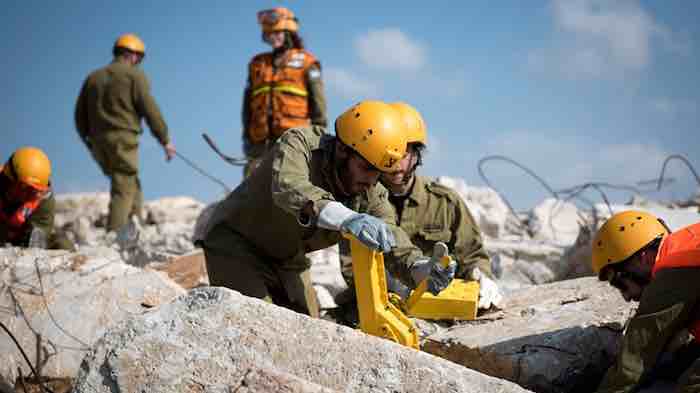 The "Solid Stand" nation-wide home front exercise conducted by the Home Front Command (HFC) took place this year on the third day of the general staff exercise, which was held on March 11-15, 2018. The exercise dealt with a multi-front conflict, with the northern front – Syria and Lebanon, through Hezbollah – representing the central threat to the Israeli civilian home front.
The "Solid Stand" nation-wide home front exercise conducted by the Home Front Command (HFC) took place this year on the third day of the general staff exercise, which was held on March 11-15, 2018. The exercise dealt with a multi-front conflict, with the northern front – Syria and Lebanon, through Hezbollah – representing the central threat to the Israeli civilian home front.
 The "March of Return" events have brought out the masses. It seems that since the first intifada the Palestinian arena has not witnessed such widespread mass participation as evident in the recent protests along the Gaza Strip border - on Land Day, Friday, March 30, 2018, and the Friday that followed. As the organizers see it, this is the start of a series of moves, intended to peak on May 15, 2018. The higher number of fatalities than generally known in mass events of recent years and the large number of wounded have aroused in the Palestinians the desire for revenge and increased the motivation to continue the demonstrations. On the other hand, the number of dead and wounded has also deterred many from continuing the activity along the border fence.
The "March of Return" events have brought out the masses. It seems that since the first intifada the Palestinian arena has not witnessed such widespread mass participation as evident in the recent protests along the Gaza Strip border - on Land Day, Friday, March 30, 2018, and the Friday that followed. As the organizers see it, this is the start of a series of moves, intended to peak on May 15, 2018. The higher number of fatalities than generally known in mass events of recent years and the large number of wounded have aroused in the Palestinians the desire for revenge and increased the motivation to continue the demonstrations. On the other hand, the number of dead and wounded has also deterred many from continuing the activity along the border fence.
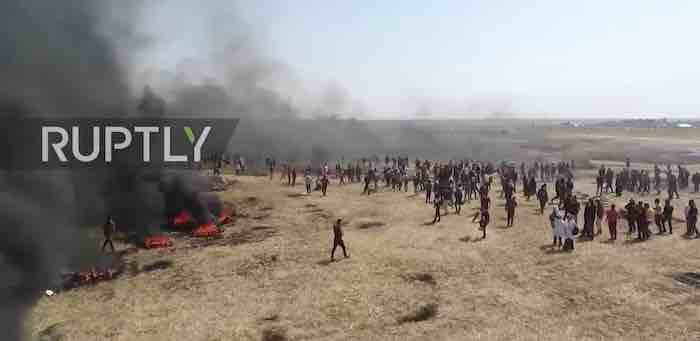 Following the "March of Return" events led by Hamas on two turbulent Fridays at the border fence between Israel and the Gaza Strip, both sides declared victory.
Hamas boasts a sense of victory and satisfaction given that in its view, the organization has reclaimed the leadership of the Palestinian struggle, found an effective strategy to challenge Israel without (at least, so far) igniting another round of fighting, positioned itself as the leader of an unarmed, non-violent civilian protest, shown Abu Mazen to be irrelevant and limited his ability to increase the sanctions on Gaza, and aroused international criticism of Israel for ostensibly disproportionate use of military force in particular, and for the "blockade" of Gaza in general.
Following the "March of Return" events led by Hamas on two turbulent Fridays at the border fence between Israel and the Gaza Strip, both sides declared victory.
Hamas boasts a sense of victory and satisfaction given that in its view, the organization has reclaimed the leadership of the Palestinian struggle, found an effective strategy to challenge Israel without (at least, so far) igniting another round of fighting, positioned itself as the leader of an unarmed, non-violent civilian protest, shown Abu Mazen to be irrelevant and limited his ability to increase the sanctions on Gaza, and aroused international criticism of Israel for ostensibly disproportionate use of military force in particular, and for the "blockade" of Gaza in general.
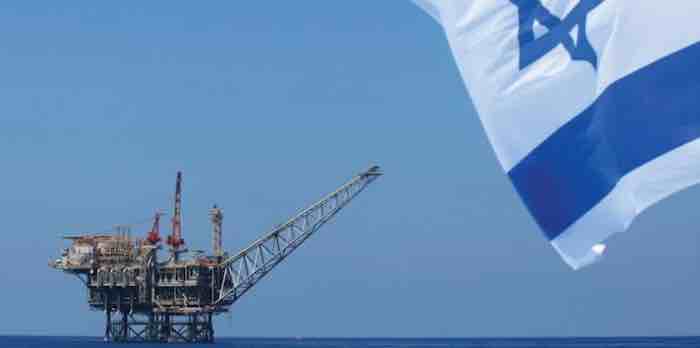 On February 19, 2018, the gas partnerships in Israel announced a $15 billion contract to export 64 billion cubic meters of natural gas to Egypt over ten years. The contract, between the owners of the Tamar and Leviathan fields and the Egyptian Dolphinus Holding, is based on a memorandum of understanding from October 2014. Presumably the government of Israel played an important role in securing this deal, by promoting it with the Egyptian government and possibly also by covering the guarantees required from Dolphinus for its approval.
On February 19, 2018, the gas partnerships in Israel announced a $15 billion contract to export 64 billion cubic meters of natural gas to Egypt over ten years. The contract, between the owners of the Tamar and Leviathan fields and the Egyptian Dolphinus Holding, is based on a memorandum of understanding from October 2014. Presumably the government of Israel played an important role in securing this deal, by promoting it with the Egyptian government and possibly also by covering the guarantees required from Dolphinus for its approval.
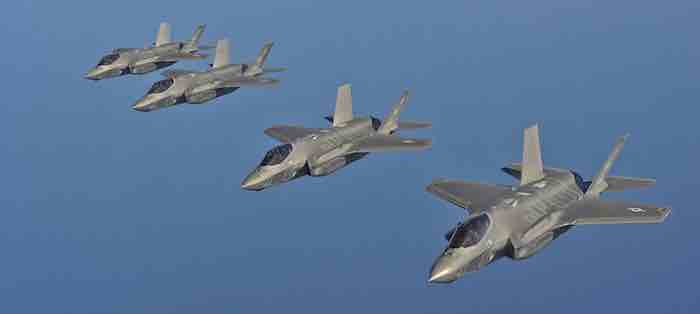 Israel's aerial superiority remains a key component of its qualitative military edge in the region. Israel's airpower is central to its image and deterrent ability: it protects the country's airspace, provides the first and multi-arena response to both immediate and more distant threats, enables retaliation and retribution missions for attacks on Israel, and plays a central role in managing military operations on various fronts.
Israel's aerial superiority remains a key component of its qualitative military edge in the region. Israel's airpower is central to its image and deterrent ability: it protects the country's airspace, provides the first and multi-arena response to both immediate and more distant threats, enables retaliation and retribution missions for attacks on Israel, and plays a central role in managing military operations on various fronts.
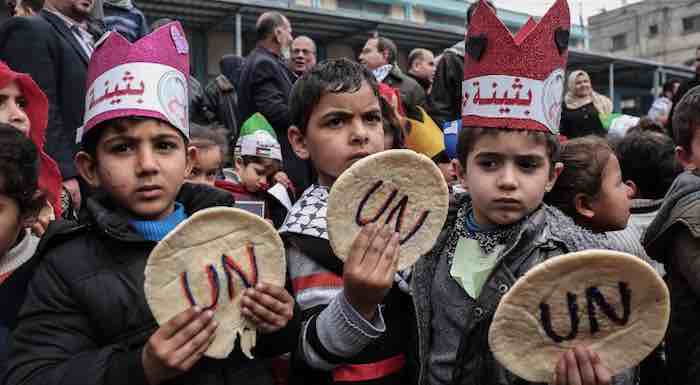 The Palestinian refugee issue has been seen for some seventy years as a principal obstacle to a resolution of the conflict between Israel and the Palestinians. However, the expanding numbers of refugees from the Middle East and Africa today challenge the uniqueness of the Palestinian situation. In fact, the issue of Palestinian refugees is perceived more as the reflection of an ongoing lapse by Arab countries, Israel, and the international community, which have been unable to separate the solution to this problem from the greater political arrangement between Israel and the Palestinians.
The Palestinian refugee issue has been seen for some seventy years as a principal obstacle to a resolution of the conflict between Israel and the Palestinians. However, the expanding numbers of refugees from the Middle East and Africa today challenge the uniqueness of the Palestinian situation. In fact, the issue of Palestinian refugees is perceived more as the reflection of an ongoing lapse by Arab countries, Israel, and the international community, which have been unable to separate the solution to this problem from the greater political arrangement between Israel and the Palestinians.
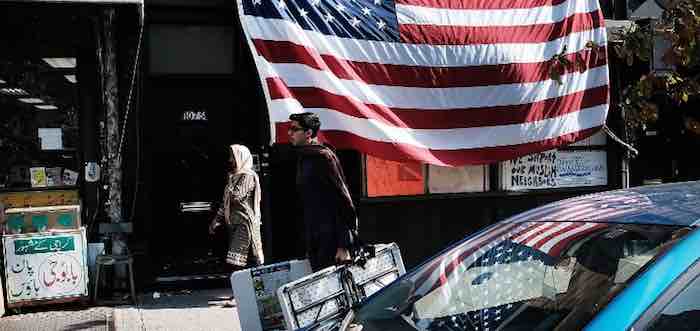 United States policy underwent significant changes during the past year under President Trump, as the administration’s national security strategy documents indicated that the shift toward the “America first” strategy was not merely about rhetoric. Recent surveys by the Pew Research Center enable evaluating whether these policy changes correspond to trends in public opinion.
United States policy underwent significant changes during the past year under President Trump, as the administration’s national security strategy documents indicated that the shift toward the “America first” strategy was not merely about rhetoric. Recent surveys by the Pew Research Center enable evaluating whether these policy changes correspond to trends in public opinion.
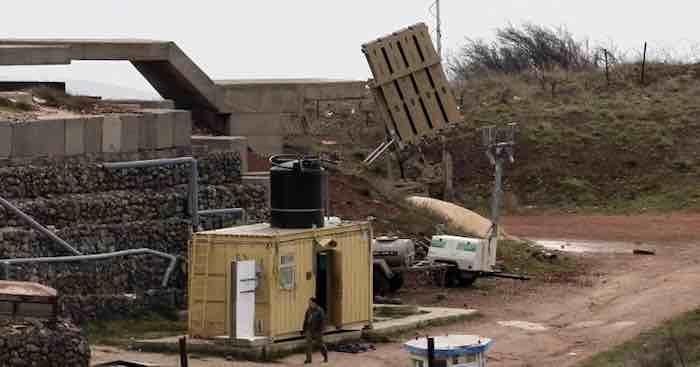 The events on the northern border before dawn on February 10, 2018, beginning with the downing of an Iranian drone that penetrated Israeli airspace, illustrated the fragile dynamic between Iran and Israel in the Syrian arena.
The events on the northern border before dawn on February 10, 2018, beginning with the downing of an Iranian drone that penetrated Israeli airspace, illustrated the fragile dynamic between Iran and Israel in the Syrian arena.
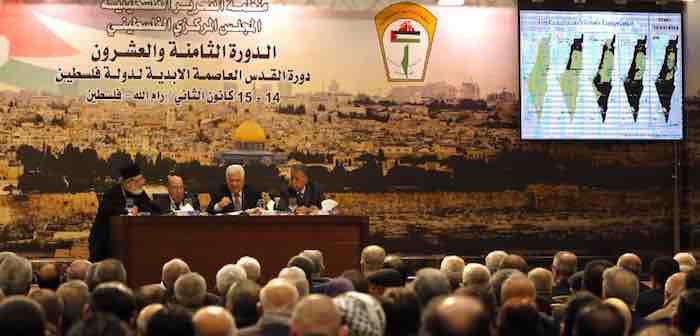 The climax of the recent PLO Central Council convention, which began on January 14, 2018 in Ramallah, was the speech by Palestinian Authority President Mahmoud Abbas. On the following day, the Council passed several resolutions that in effect are recommendations to the PLO Executive Committee, the organization’s executive body. Most of the resolutions were in the spirit of Abbas’s recommendations in his speech and resonated of past resolutions.
The climax of the recent PLO Central Council convention, which began on January 14, 2018 in Ramallah, was the speech by Palestinian Authority President Mahmoud Abbas. On the following day, the Council passed several resolutions that in effect are recommendations to the PLO Executive Committee, the organization’s executive body. Most of the resolutions were in the spirit of Abbas’s recommendations in his speech and resonated of past resolutions.
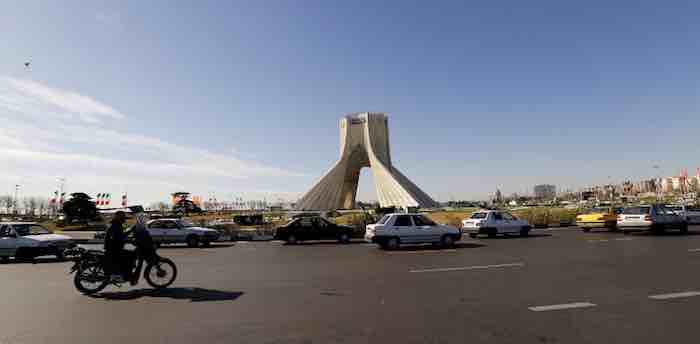 During the recent waves of protests in Iran, much criticism was voiced against the country's involvement in regional conflicts, particularly given the difficult economic situation within Iran itself. Demonstrators called for resources to be diverted from overseas to benefit the Iranian population.
During the recent waves of protests in Iran, much criticism was voiced against the country's involvement in regional conflicts, particularly given the difficult economic situation within Iran itself. Demonstrators called for resources to be diverted from overseas to benefit the Iranian population.
 On August 30, 2017, the United Nations Security Council adopted Resolution 2373, which extends Resolution 1701 (2006) and the mandate of the United Nation’s Interim Force in Lebanon (UNIFIL) for another year. The main changes in Resolution 2373 from earlier resolutions lie in the request “to look at ways to enhance UNIFIL’s efforts... including ways to increase UNIFIL’s visible presence...within its existing mandate” and “to continue to issue prompt and detailed reports on violations of Resolution 1701...on the restrictions to UNIFIL’s freedom of movement… on specific areas where UNIFIL does not access ... and to further develop a reporting mechanism in order to provide concrete and detailed information on the aforementioned issues.”
On August 30, 2017, the United Nations Security Council adopted Resolution 2373, which extends Resolution 1701 (2006) and the mandate of the United Nation’s Interim Force in Lebanon (UNIFIL) for another year. The main changes in Resolution 2373 from earlier resolutions lie in the request “to look at ways to enhance UNIFIL’s efforts... including ways to increase UNIFIL’s visible presence...within its existing mandate” and “to continue to issue prompt and detailed reports on violations of Resolution 1701...on the restrictions to UNIFIL’s freedom of movement… on specific areas where UNIFIL does not access ... and to further develop a reporting mechanism in order to provide concrete and detailed information on the aforementioned issues.”
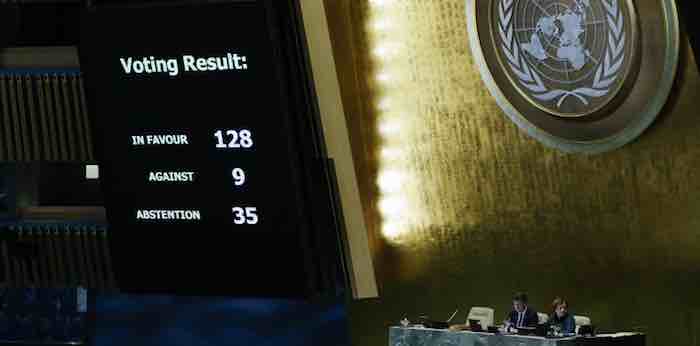 On December 6, 2017 President Trump announced that the United States recognizes Jerusalem as Israel's capital. What followed this controversial announcement in the UN realm was a flurry of initiatives, including a draft resolution submitted to the Security Council by Egypt; a resolution submitted to the General Assembly by Yemen and Turkey; Israel's withdrawal form UNESCO (UN Educational, Scientific and Cultural Organization), and President Trump's threat to cut funding from UNRWA (UN Relief and Work Agency responsible for Palestinian refugees).
On December 6, 2017 President Trump announced that the United States recognizes Jerusalem as Israel's capital. What followed this controversial announcement in the UN realm was a flurry of initiatives, including a draft resolution submitted to the Security Council by Egypt; a resolution submitted to the General Assembly by Yemen and Turkey; Israel's withdrawal form UNESCO (UN Educational, Scientific and Cultural Organization), and President Trump's threat to cut funding from UNRWA (UN Relief and Work Agency responsible for Palestinian refugees).
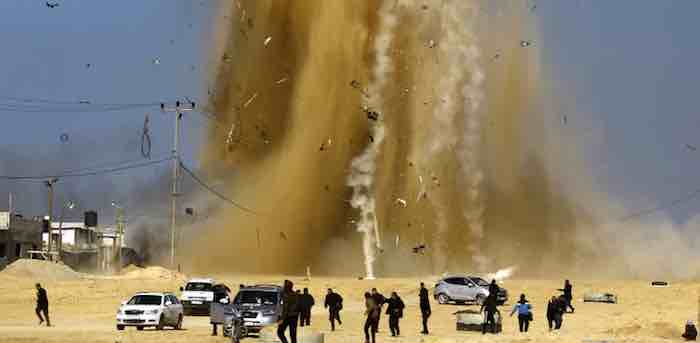 Conditions in the Gaza Strip today resemble those that prevailed before previous rounds of hostilities, above all Operation Protective Edge, and it thus appears that the road to a further round of fighting in Gaza – after over three years of relative quiet – is growing shorter.
Conditions in the Gaza Strip today resemble those that prevailed before previous rounds of hostilities, above all Operation Protective Edge, and it thus appears that the road to a further round of fighting in Gaza – after over three years of relative quiet – is growing shorter.
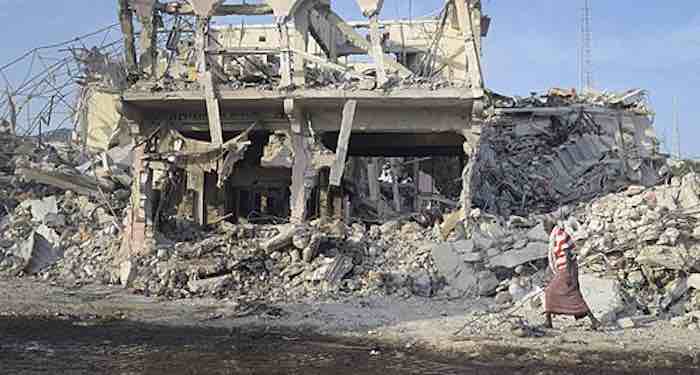 Suicide attacks remain one of the most effective tools available to terrorist organizations to achieve their objectives. Suicide attacks are for the most part particularly lethal and create a profound feeling of helplessness among the affected public, given that there presumably is no way to deter a person who is prepared to kill him or herself in order to harm his/her enemies.
Suicide attacks remain one of the most effective tools available to terrorist organizations to achieve their objectives. Suicide attacks are for the most part particularly lethal and create a profound feeling of helplessness among the affected public, given that there presumably is no way to deter a person who is prepared to kill him or herself in order to harm his/her enemies.

